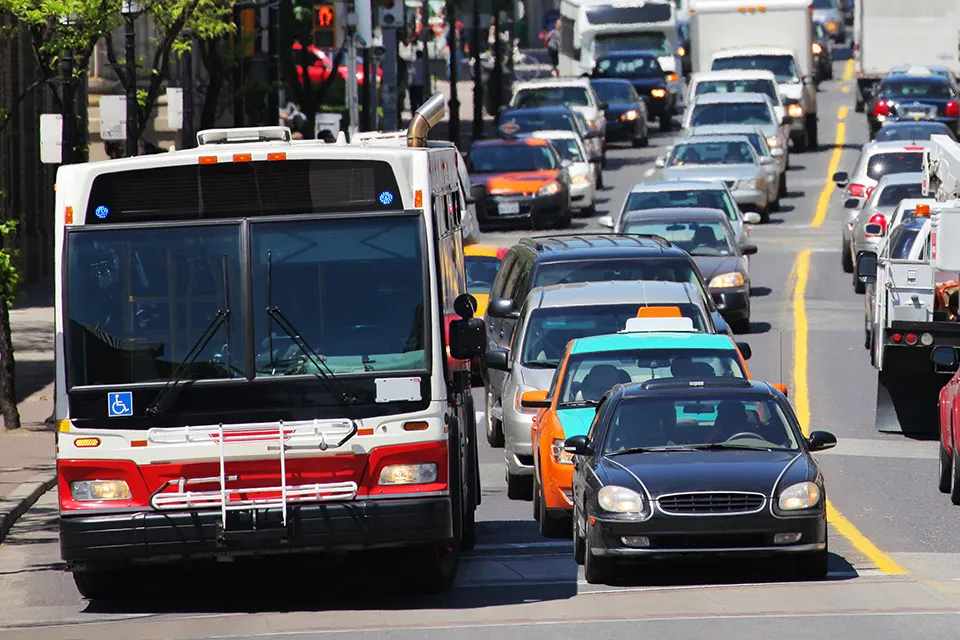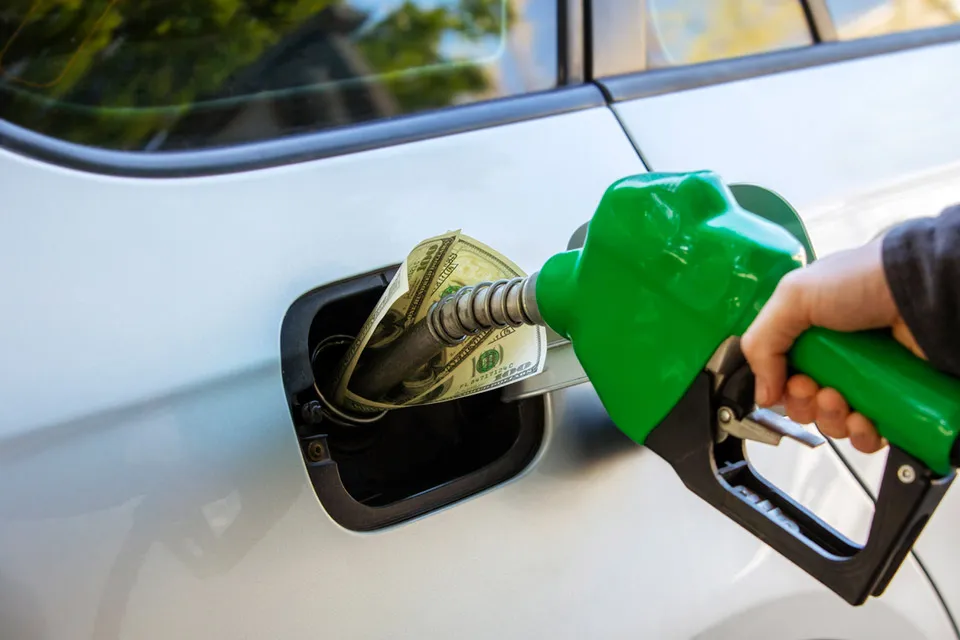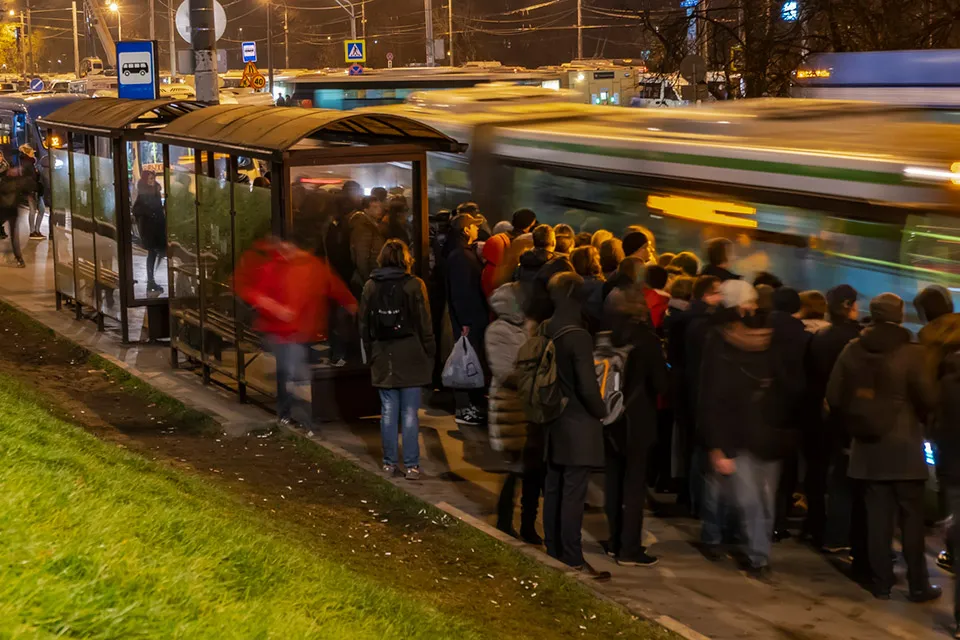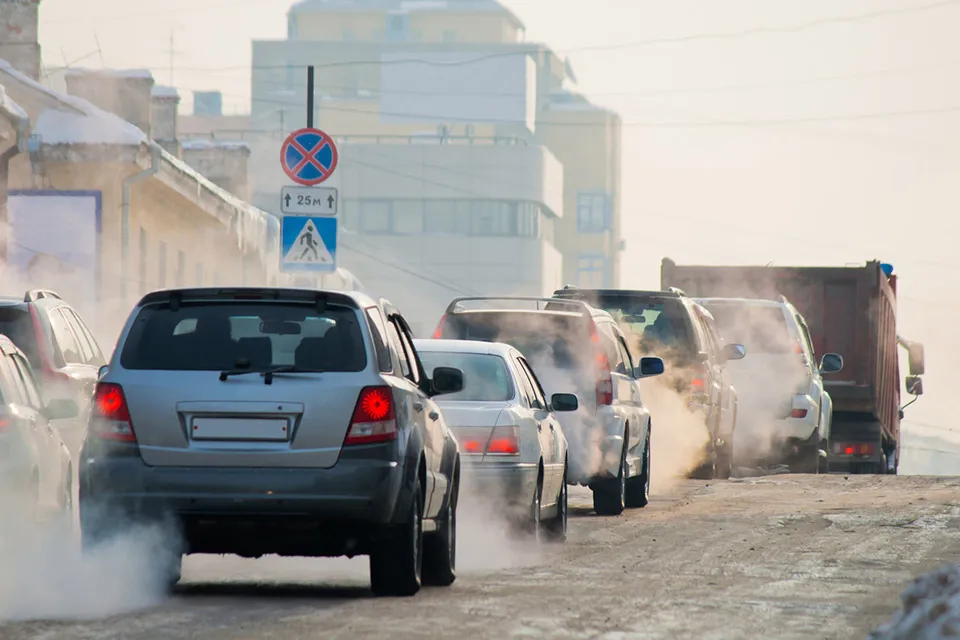- Comparing Owning a Vehicle vs Public Transportation
- Owning a Vehicle
- Benefits of Owning a Vehicle
- Drawbacks of Owning a Vehicle
- Public Transportation
- Benefits of Public Transportation
- Drawbacks of Public Transportation
- Comparing Costs
- Comparing Convenience and Flexibility
- Comparing Environment Impact
- Closing Thoughts
Comparing Owning a Vehicle vs Public Transportation

Are you tired of sitting in traffic, dealing with parking woes, and shelling out big bucks for car maintenance? Or are you someone who cannot imagine life without the freedom of owning a vehicle? Whatever your stance, there's no denying that transportation is a significant aspect of our daily lives. Let's explore the pros and cons of two of the most popular modes - owning a vehicle versus public transportation. From cost-effectiveness to environmental impact and time management – let's delve deep into the nitty-gritty details and help you decide which option works best for you!
Owning a Vehicle
Assuming you don't have a car and are trying to decide if it's the right time to buy one, there are a few things you should take into consideration. The average new car now costs around $30,000, and the average used car is about half that. When it comes to ownership costs, fuel will be your biggest ongoing expense. The national average for gas is currently $2.58 per gallon.
Depending on the type of car you get, its fuel efficiency, and how much you drive, it'll cost a few hundred to over a thousand dollars in fuel costs per month. In addition to gas, other normal maintenance expenses like insurance, regular oil changes, and tire alignment/rotations may add up to hundreds of dollars a year. Finally, there are other one-time ownership costs that should be budgeted into your car purchase, such as registration fees, taxes, and possibly even repairs if you buy an older used vehicle.
Overall owning a vehicle is an expensive commitment but can bring value by providing convenience and transportation that public transportation or other methods cannot. It can also be fun for enthusiasts who enjoy tinkering with their cars or participating in car clubs/meets. If you decide that now is the right time for you to take the plunge into car ownership, make sure that you do your research beforehand so that you understand all the costs associated with it and how they fit into your budget.
Benefits of Owning a Vehicle
There are many benefits to owning a vehicle. For one, it offers convenience and flexibility. You can go where you want, when you want. You don't have to depend on public transportation, which can be unreliable. Additionally, it can be more economical to own a vehicle if you live in a suburban or rural area and need to do a lot of driving.
Another benefit of owning a vehicle is that you have more control over your environment. You can choose to drive in comfort with the music and climate control that you like. You also don't have to worry about being crowded or having to share space with strangers.
Finally, owning a vehicle can give you a sense of freedom and independence. You don't have to rely on others to get around and can explore new places at your own pace.
Drawbacks of Owning a Vehicle

Assuming that the average American commute is 26.9 minutes, that means Americans collectively spend approximately 37.5 billion hours commuting every year. Of course, a large number of those commuters are driving themselves in their own personal vehicle. For some, this may be the most convenient option. But for others, it might make more sense to use public transportation – even if it takes a bit longer – due to the many drawbacks of car ownership.
The largest financial consideration when owning a car is undoubtedly fuel costs. According to AAA, the average driver spends $2,700 per year on gas – and that's assuming gas prices stay relatively stable (they have been steadily climbing for years). In fact, since 2008, gas prices have increased by over 50%. And if you drive an electric vehicle, don't forget about the cost of charging your battery (which can add up quickly if you don't have access to free charging stations).
In addition to fuel costs, there are also the necessary maintenance and repair expenses that come with car ownership. Even if you take good care of your vehicle, parts will inevitably wear out and need to be replaced. Tires, brakes, and oil changes are just a few of the routine maintenance items that can add up over time. Then there are larger repairs that will likely be required at some point during your car's lifetime, such as a new engine or transmission. These types of repairs can easily cost thousands of dollars.
Public Transportation
Assuming that the majority of people in the United States use some form of personal transportation to get around, whether it is a car, truck, or motorcycle, there are other options available that could save you money while still getting you where you need to go. Public transportation is not only a less expensive option than owning your own vehicle, but it can also be more efficient and better for the environment.
Benefits of Public Transportation
There are many benefits to using public transportation instead of owning a vehicle. For one, it is much cheaper. The cost of gas, insurance, and maintenance can be a huge financial burden, but with public transportation, those costs are greatly reduced or even eliminated.
Public transportation is also more environmentally friendly than private vehicles. Fewer cars on the road mean less pollution and a smaller carbon footprint. Additionally, many public transportation systems use renewable energy sources, further reducing their environmental impact.
Another benefit of public transportation is that it can be more convenient than driving. Traffic jams and finding parking can be frustrating and time-consuming, but with public transit, you can avoid all of that. Plus, many public transit systems offer amenities like Wi-Fi and comfortable seating that make the ride more enjoyable.
Drawbacks of Public Transportation

Public transportation can be expensive. The cost of a monthly transit pass can add up, and if you're taking multiple forms of public transportation (e.g., trains and buses), the costs can really start to pile up. Additionally, many public transportation systems are underfunded, which can lead to delays and cancellations.
Public transportation can also be crowded, especially during rush hour. This can make for a very uncomfortable ride, and if you're trying to get somewhere in a hurry, it can be frustrating to have to wait for the next train or bus. Plus, you also have to walk from wherever the public transportation drops you off to your destination, adding more time to your trip.
Finally, public transportation can be unsafe. It's not uncommon for there to be crime on public transportation, and you may find yourself in an unsafe situation if you're not paying attention.
Comparing Costs
Public transportation is often thought of as a cheaper alternative to owning a vehicle. But is it really? Let's take a look at the cost of public transportation VS the cost of owning a vehicle and see which one truly is more affordable.
The cost of public transportation can vary greatly depending on where you live. In a rural area, the cost of a bus ticket may be very affordable. But in a major city, the cost of a monthly subway or train pass can be quite expensive. When considering the cost of public transportation, it's important to factor in both the upfront costs and the ongoing costs.
The upfront cost of owning a vehicle includes the purchase price, insurance, and registration fees. The ongoing costs include gas, maintenance, and repairs. For many people, these ongoing costs can add up to more than the upfront costs.
If you're trying to decide whether to own a vehicle or use public transportation, it's important to consider all of the costs involved. In most cases, owning a vehicle will be more expensive than using public transportation. But there are some situations where using public transportation may actually be more expensive than owning a vehicle.
Comparing Convenience and Flexibility
There are many factors to consider when deciding whether to own a vehicle or use public transportation. Cost is often the most important factor, but there are also considerations of convenience and flexibility.
Owning a vehicle provides more flexibility in terms of where you can go and when you can go there. You don't have to worry about schedules or routes, and you can make spontaneous decisions about your travel plans. However, owning a vehicle also comes with added costs, such as insurance, registration, and maintenance.
Public transportation is often more convenient than owning a vehicle, especially if you live in an urban area with good public transit options. You don't have to worry about parking or traffic, and you can save money on gas and insurance. However, public transportation can be less reliable than driving your own car, and it may not be able to take you exactly where you want to go.
Comparing Environment Impact

When it comes to the environment, there are pros and cons to both owning a vehicle and using public transportation. If you're trying to decide which is better for you, here's a comparison of the two options.
Owning a vehicle has a bigger environmental impact than using public transportation. Cars emit greenhouse gases that contribute to climate change, and they also produce air pollution. In addition, manufacturing vehicles requires resources like oil and gas, which can have harmful effects on the environment.
However, there are some environmental benefits to owning a car. For example, newer cars are much more fuel-efficient than older models, so your emissions will be lower if you have a newer car than most forms of public transportation.
Public transportation also has its own set of environmental impacts. Buses and trains emit greenhouse gases just like cars do, but they carry more people, so the emissions per person are lower. Public transportation can also be less reliable than owning your own car, which can lead to more emissions if you end up having to drive because your bus was late or canceled.
So, which is better for the environment? It depends on several factors, including how often you use public transportation and how fuel-efficient your car is. If you can take advantage of public transportation when possible and choose a fuel-efficient car when you do need to drive, the costs can be almost exactly the same.
Closing Thoughts
Owning a vehicle or using public transportation are both viable options when looking at how to best meet your transportation needs. Ultimately, the decision between owning a vehicle or relying on public transit will come down to several factors, such as cost, convenience, and availability. Whether you decide that purchasing a car from the GoodCar Marketplace is the right decision for you or if using alternative forms of transportation such as buses and trains makes more sense financially, it's important to weigh your options before making a final decision.
- Comparing Owning a Vehicle vs Public Transportation
- Owning a Vehicle
- Benefits of Owning a Vehicle
- Drawbacks of Owning a Vehicle
- Public Transportation
- Benefits of Public Transportation
- Drawbacks of Public Transportation
- Comparing Costs
- Comparing Convenience and Flexibility
- Comparing Environment Impact
- Closing Thoughts
FREE Vehicle Search
- Accidents
- Problem Checks
- Title Records
- Recalls
- Values
- Specs
-
InfoPay, Inc. (dba GoodCar) is an Approved NMVTIS Data Provider
-
-































